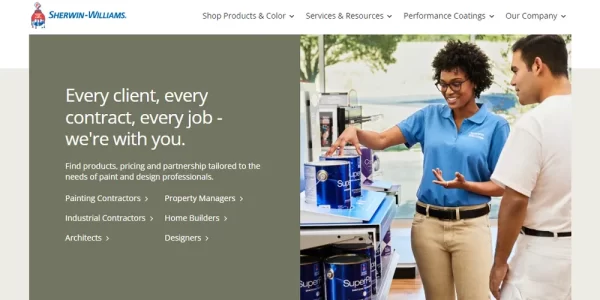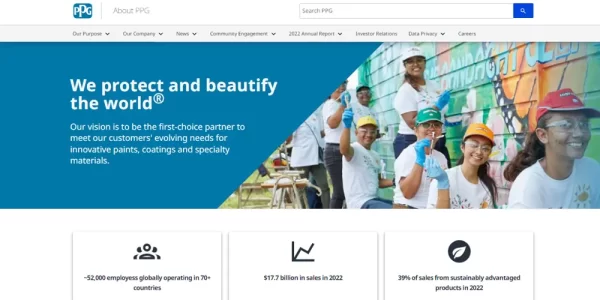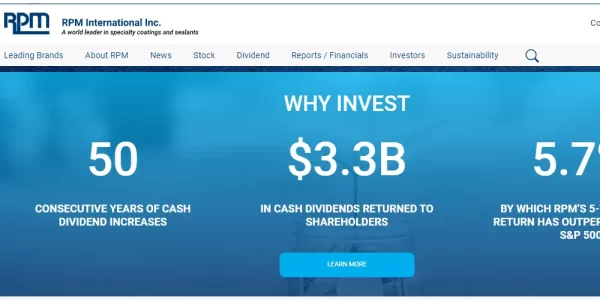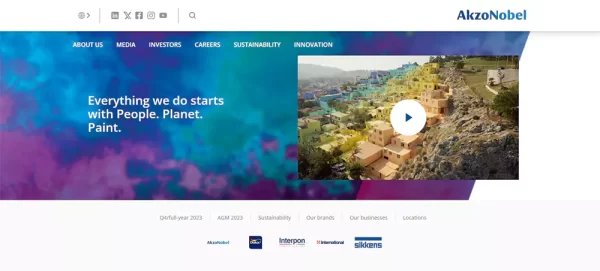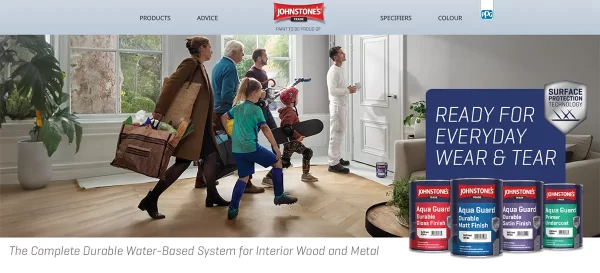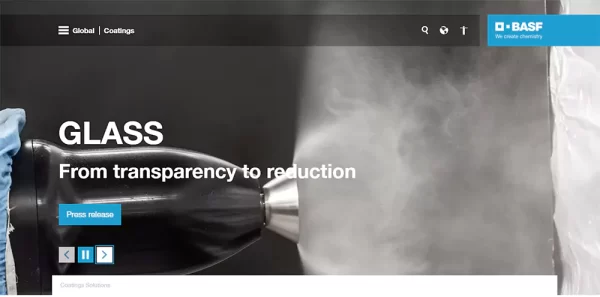Asphalt, bitumen, or bituminous paint are all the same coatings. However, different regions call it differently. Similarly, different countries have different standards and certification requirements. Let’s take a look at the different certifications involved in Bituminous Paint, the market analysis of major manufacturers, and future technology development trends.
What Are the Key Standards and Specifications for Bituminous Paint?
Bituminous Paint is a paint commonly used around the world. Like many other painting products, its production and application are subject to local technical standards and specifications. These standards ensure that bituminous coatings meet safety, durability and environmental benchmarks in the local area. Help guide the healthy development of the entire Bituminous painting ecology.
Common Industry Standards for Bituminous Paints.
- ASTM International: ASTM standards generally cover the performance of bituminous products, such as their water resistance, heat resistance and UV resistance. The following two points are the most noteworthy specific standards for bituminous paints:
ASTM D1187/D1187M: Standards for bituminous emulsions.
ASTM D4586: Relates to asphalt-based coatings used as roof cement. - ISO Standards (International Organization for Standardization): ISO standards ensure that bituminous paints meet global quality and safety benchmarks. For example: ISO 12944 is a standard focused on anti-corrosion protection, which bituminous paints generally provide.
| Asphalt Paint Certification Requirements by Country | ||
|---|---|---|
| Country | Certification/Standards | Key Requirements |
| United States | ASTM Standards, EPA Compliance | Low VOC levels; specific performance tests like water resistance. |
| European Union | CE Marking, REACH Compliance | Corrosion resistance (ISO 12944); eco-friendly formulations. |
| United Kingdom | British Standards (BS), BBA Certification | Weatherproofing capabilities; adherence to BS 3416 for bitumen coatings. |
| Australia | AS Standards, Green Star Certification | Focus on sustainability; compliance with AS 2904 for bitumen waterproofing. |
| India | IS Standards, BIS Certification | Heat and water resistance; IS 158 for bituminous waterproofing products. |
| Canada | CSA Standards, Environment Canada Guidelines | Compliance with cold-weather performance standards; low VOC requirements. |
| China | GB Standards, CQC Certification | Focus on adhesion and heat resistance; compliance with GB/T 9755 standards. |
| Japan | JIS Standards, Eco Mark Certification | Durability under high humidity; compliance with JIS K 5660 for bitumen coatings. |
| South Korea | KS Standards, Green Certification | High UV resistance; compliance with KS M 2337 standards for waterproofing. |
Make sure the bituminous coatings in your hands meet the standards.
Let me share some tips to help you make an informed buying decision. Whether you’re using asphalt paint for a commercial project or a backyard DIY, here are a few things to know if your asphalt paint is up to standard:
- Check the label on the asphalt paint package to see if there’s a certification mark like ASTM, ISO, or CE.
- Certification documents can be requested from the asphalt paint supplier. Reliable brands have the ability to provide this information. Reliable brands are able to provide this information.
- Check industry forums & directories like Reddit, Quora, or coatingsdirectory. Gaining first-hand experience from professionals can help determine which brand of asphalt paint to choose that meets local standards.
Knowing that my paint meets the right standards gives me peace of mind, and I hope this guide will give you peace of mind, too.
Top Asphalt Paint Manufacturers: A Market Analysis.
In the asphalt coatings market, there are many brands, each with its own advantages. As a practitioner in this industry, it is important to understand the most well-known head manufacturers of asphalt coatings currently. I have summarized ten well-known global asphalt coatings manufacturers, their outstanding features and market share. I hope it will be helpful to you.
Sherwin-Williams is one of the world’s largest coatings companies, specializing in high-performance coatings. Their asphalt coatings are known for their durability and weatherability, making them a top choice for industrial and infrastructure applications. The company offers a wide range of asphalt-based products, including sealants and primers, to meet a variety of project requirements. Their products are widely trusted across the United States.
PPG Industries specializes in advanced industrial coatings, including asphalt-based solutions. Their asphalt coatings are designed to provide long-lasting protection against harsh weather and environmental wear and tear. Focusing on sustainable innovation, they offer low-VOC and environmentally friendly formulations that meet global standards.
RPM International has several subsidiaries that offer asphalt coatings, such as Rust-Oleum. These products are ideal for waterproofing, rust prevention, and pavement maintenance. RPM’s asphalt coatings are known for their affordability and ease of application, making them popular with small contractors and DIY users. Their innovative coating solutions meet residential and commercial needs, emphasizing durability and practicality.
Tremco is a leader in waterproofing and sealing technology, providing high-performance bituminous coatings for commercial and industrial applications. Its products excel in protecting surfaces from water penetration, chemical damage, and UV exposure. Tremco’s bituminous coatings are widely used in roofing and structural applications throughout North America and are known for their reliability and ease of maintenance.
Axalta specializes in industrial-grade coatings, including a full range of bituminous coatings for the construction and automotive industries. Their bituminous coatings offer excellent adhesion and the ability to withstand extreme conditions such as heat and heavy rain. Axalta has an extensive supply presence in both the United States and Mexico, making it a trusted brand in North America and Latin America.
Sika AG is a global leader in specialty construction chemicals and bituminous coatings. Its products stand out for their excellent water resistance and adhesion, meeting the needs of residential and industrial applications. Sika’s bitumen coatings are designed for long-term durability, even in extreme weather conditions. Their reputation for quality and innovation makes them a top choice in Europe and beyond.
AkzoNobel offers innovative bituminous coatings that combine performance and sustainability. Their bituminous coatings are tailor-made for infrastructure and construction projects and offer excellent resistance to environmental damage. AkzoNobel’s advanced formulations help reduce maintenance requirements, making them an affordable option for large-scale applications. Their commitment to environmentally friendly practices also aligns with the market’s growing demand for sustainable solutions.
Johnstone’s is a trusted brand in the UK that provides high-quality bituminous coatings that comply with British Standards (BS). Their bituminous coatings are widely used in construction and industrial applications, providing strong protection against water and weather. Focusing on easy-to-apply formulations, its products are suitable for professionals and DIY enthusiasts.
BASF’s Coatings business leads innovation with asphalt-based products designed for heavy-duty applications. Its asphalt coatings offer excellent adhesion, flexibility and resistance to extreme weather. BASF’s focus on creating long-lasting solutions that reduce long-term maintenance costs makes it the preferred choice for infrastructure and industrial projects across Europe.
The asphalt coatings industry is dominated by manufacturers that focus on innovation, environmental compliance and global influence. North American brands such as Sherwin-Williams and PPG have a considerable market share with their extensive distribution network and high-quality products. In Europe, which pays more attention to environmentally friendly solutions, companies such as Sika and Akzo Nobel are in a leading position. Emerging markets in Africa and the Middle East prefer cost-effective and high-performance asphalt coatings.
Have you ever worked with any of these manufacturers? Let me know in the comments – I would love to hear about your experience.
What Are the Environmental Concerns with Bitumen Paint?
I’ve been thinking about an issue recently: the environmental impact of asphalt paint. As we all know, asphalt paint is derived from petroleum and its production relies heavily on fossil fuels. As with many industrial coatings products, volatile organic compounds (VOCs) are released during application. Thankfully, environmentally friendly asphalt coatings have now been developed (using water-based formulations, rather than solvent-based ones). These products significantly reduce VOC emissions, striking a balance between performance and environmental responsibility. We all have a responsibility to make smarter, greener choices.
In addition to early painting, it is also very important to properly dispose of remaining paint at the end of construction. It is irresponsible to pour leftover asphalt paint directly into the drain or splash it randomly. It is recommended to take leftover asphalt paint to a local recycling program or donate it to a community project. If everyone pays attention to these details, it can make a big difference.
Future Development Trend of Asphalt Paint.
Looking ahead, I see a big change happening in the asphalt coatings industry. As people become more environmentally conscious and regulations are implemented, asphalt coatings manufacturers have been continuously innovating.
Sustainable bioasphalt coatings aren’t just experimental anymore. Researchers at some well-known coatings companies are exploring bio-based asphalt alternatives, such as those extracted from vegetable oils or recycled materials. These breakthroughs not only reduce dependence on oil, but are also in line with the public’s direction towards sustainable development.
In addition, the trend of improving the performance of asphalt coatings is also escalating. Asphalt coatings formulated with a variety of polymers can improve flexibility, UV resistance, and durability. Even some specially formulated asphalt coatings will self-heal when micro cracks appear, extending the life of the roof.
Although asphalt coatings are constantly improving, it is difficult to fully popularize them in the short term. The biggest obstacle is balancing performance and price, which is still a difficult problem at present. In the future, industry players, researchers and policymakers will work together. As consumers, we choose environmentally friendly products as much as possible and support brands that prioritize sustainability. Let us embrace change while moving forward together.


